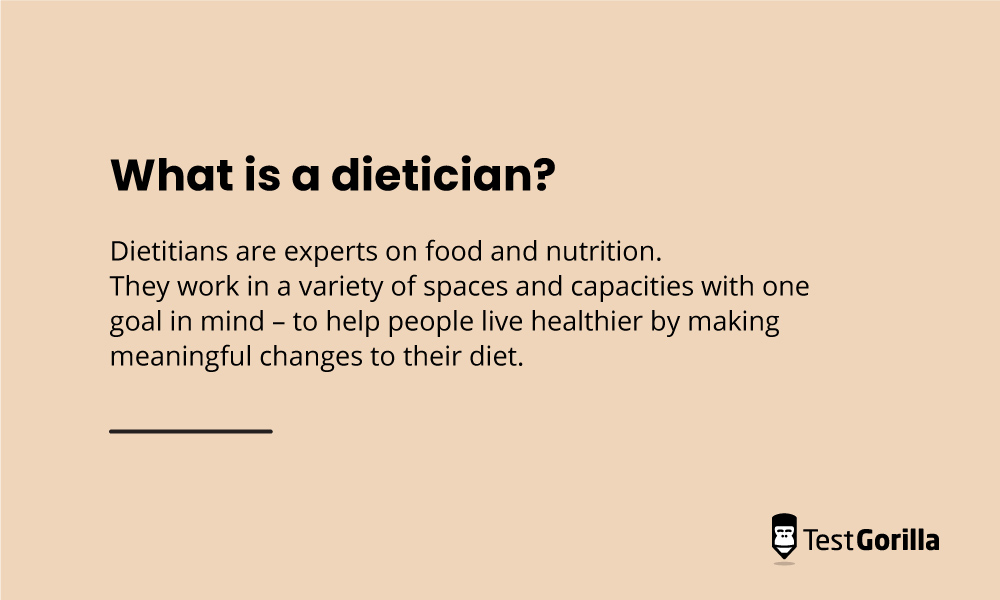All Categories
Featured
Table of Contents
The kinds of Nutritionists are: and. The previous are those individuals that use the clinical method to research nutrients, both as specific substances and as they communicate in food and nutrition while the latter are professionals that aid in identifying the nutritional problems of areas and in discovering options to those troubles.
: They collaborate with wellness programs and global wellness organizations.: They are liable for large food preparation and service.: They are specialists in nourishment and aging. They are Board accredited in Gerontological Nourishment with the American Dietetic Association.: They are primarily involved with nutritional associated study in the scientific element of nourishment in condition states, public facet on main, secondary and in some cases tertiary wellness prevention and foodservice facet in concerns including the food gotten ready for individuals.
A Better Health Management Dietitian?
, and papers-- either as a professional visitor viewpoint, regular writer or visitor, or for resource, dining establishment, or recipe growth and critique.: These work under personal technique. As described above, all dietitians are nutritionists however not all nutritionists have the credentials and certifications to be called dietitians.
This means exactly the same point as Registered Dietitian (RD), a term that has been in usage for a long time. While certification to come to be an RD or RDN is controlled by the Academy of Nourishment and Dietetics a national organization licensure is managed by individual states.

In order to provide clinical nutrition therapy and qualify as companies for insurance provider, a dietitian needs to be licensed by the state. According to the Bureau of Labor Statistics, the demand for dietitians and nutritionists is expected to increase by 20% in between 2010 and 2020 this is a much faster growth rate than the standard for all line of work.
What Is The Best Accredited Dietitian Service?
There are considerable differences in settlement based upon field of expertise, with Professional Pediatric Dietitians and Dairy Nutritionists averaging around $90,000. In 2014, The Bureau of Labor Statistics (BLS) discovered that the top 10% of dietitians and nutritional experts make even more than $79,000, and the bottom 10% much less than $36,000 - Functional Nutritionist. A mean per hour wage of $27.62 was determined for both markets, with the leading 10% earning over $38.00 per hour, and the bottom 10% earning below $17.00 per hour

There is a selection of jobs available in various settings for those who desire to function with the public, as well as for those who prefer more research-focused employment. Many get involved in one of these areas in order to assist individuals live healthier lives which can be tremendously satisfying.
With existing data that one-third of the united state population is obese, as well as a multitude of senior U.S. homeowners, dietitians and nutritional experts are likely to have a more considerable function in the future. My Strategy ranks dietitians and nutritionists at # 53 in their happiness index of leading 300 careers with the greatest work complete satisfaction ratings.
In addition to participating in an approved program, the majority of states need dietitians to be certified or to have specialist accreditation, or both.
What Is The Best Accredited Nutritionist Software?
Your core classes might include: Food scientific research Chemistry Wellness treatment plan Clinical nourishment Biostatistics Microbiology Food service monitoring You'll additionally need to finish a dietetic internship.

And to advance in the field, you'll likely require a master's level. So, whether composed in law or otherwise, dietitians and nutritionists sometimes need a comparable education and learning. Usual bachelor's levels for nutritionists include nourishment scientific research or an associated technique, such as dietetics, kinesiology, food system management, or biochemistry. Several of your courses could include: Trends in nutrition Biomedical data Medical nutrition Food, nutrition, and behavior Nutritional ecology Area nourishment Physiology Some degree programs include internships, yet in others you'll have to find opportunities by yourself.
The number of hours you'll require might rely on requirements in the state where you'll work. Whether you intend to make a credential or otherwise, it's a great concept to finish at the very least one teaching fellowship to gain useful experience prior to looking for a full time duty. Licensing and qualification needs for nutritionists and dietitians differ from one state to another.
What Is The Best Personal Nutritionist Product?
A specialist accreditation demonstrates your competence and knowledge in your area. These are not certification programs. A certificate indicates that you have actually taken a training program to discover an ability. Certification reveals your mastery expands past your education and learning and that you have actually passed a certifying exam. Below are the top accreditations for dietitians and nutritional experts.
The titles are basically the same. There's no expert difference in between them, and you're totally free to select which one you intend to use based upon personal choice. To take the qualification examination, you should: Make an undergraduate level that's accredited by the ACEND Full a dietetics teaching fellowship After Jan. 1, 2024, you'll require to earn a master's level to receive the qualification.
What Is The Best Paediatric Dietitian Company Near Me
Bureau of Labor Data puts dietitians and nutritional experts in the very same classification and states they earn a average yearly wage of $69,680. Yet there is a variety in salaries, with the lower 10% around $44,910 and the leading 10% around $98,830, according to the BLS. Nutritional expert and dietitian roles are expected to expand 6.6% with 2032, according to the BLS.
This does not mean that occupation transcends to the other, as they both have various functions and credentials that might in some cases overlap. If you wish to find out even more about what makes these professions distinctive, maintain analysis. Dieticians are experts that help boost the quality of life with healthy food options.
What Is The Best Accredited Nutritionist?
Nutritionist suggestions concerning nutrition's influence on wellness. They help people embrace healthier ways of consuming and produce customised plans based upon goals. Their solutions consist of nutritional assessment and therapy, dish preparation and creating healthy and balanced consuming programs. Some have official education and learning and qualifications, others might have a lot more standard qualifications. The field is less controlled than diet professionals; therefore, nutritional experts' degrees of knowledge and certifications can vary.
There are a number of differences in between dieticians and nutritionists. As their careers advance, several diet professionals pursue innovative degrees, like a Master's or Doctorate, to be experts in certain areas of nutrition.
Latest Posts
What Is The Best Heart Health Nutrition App?
Performance Nutritionist ( Belmont)
Diabetes Dietitian – East Rockingham